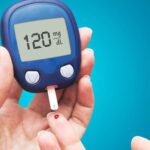Many people who have bipolar disorder are unaware of the dramatic changes in their moods and how those changes affect their lives and the lives of those they care about. As a result, too many people with this condition, thus go without the appropriate care to improve their quality of life. If you think you or your loved one may have bipolar disorder, it’s essential to get the proper bipolar disorder treatment near me.
What Is Bipolar Disorder?
Bipolar disorder is a chronic mental health condition that causes rapid changes in mood, energy levels, thought processes, and behaviour. These shifts interfere with your ability to complete daily duties and can persist for a few minutes or several days, weeks, or even months.
Different types of bipolar disorder are characterized by severe mood swings known as hypomanic/manic and depressed episodes. Bipolar disorder patients don’t always experience hypomania, manic episodes, or depression episodes. They also experience periods of everyday mood, which is known as euthymia.
Signs & Symptoms Of Bipolar Disorder
Like major depressive disorder, bipolar disorder shows the same symptoms during depressive episodes. They consist of the following:
- overwhelming sadness
- Low energy and exhaustion, a lack of drive.
- Feelings of worthlessness or despair.
- Loss of enjoyment of activities that you once found enjoyable.
- Having trouble focusing and making decisions.
- crying uncontrollably
- Irritability.
- More sleep is required.
- Insomnia or sleeping too much.
- A shift in appetite results in weight gain or decrease.
- Suicidal or death-related ideas
What Are the Causes Of Bipolar Disorder?
Researchers still don’t fully understand the root cause of the bipolar disorder.
However, scientists think there is a significant genetic (inherited) component. More than two-thirds of patients with bipolar disorder have at least one close biological relative with the condition, making it one of the most heritable psychiatric conditions. It doesn’t necessarily follow that you will get bipolar disorder just because a biological relative does.
A stressful event, such as the death of a loved one, a significant illness, divorce, or money issues, can lead to a manic or depressive episode. As a result, trauma and stress may potentially contribute to the onset of bipolar disorder.
Bipolar Disorder Treatment Options
Hospitalization
If you act dangerously, feel suicidal, or lose touch with reality and your family, your doctor may advise residential care. Whether you are experiencing a manic or major depressive episode, receiving psychiatric care in a hospital can help you feel calm and stabilize your mood.
Psychotherapy
Psychotherapy, also called “talk therapy,” can be an essential part of a patient’s treatment plan for bipolar disorder. The term “psychotherapy” refers to various therapeutic techniques that can assist you in identifying and changing problematic thoughts, feelings, and actions. Working with the proper mental health professional in Delhi can provide you, your family, and others with support, information, and guidance.
Cognitive Behavioural Therapy (CBT)
The goal is to recognize unhealthy thoughts and behaviours and replace them with positive, healthy ones. Finding out what triggers your bipolar episodes could well be assisted by cognitive behavioural therapy. Additionally, you learn practical coping skills for trying situations.
In cognitive-behavioural therapy, you explore how your thoughts affect your emotions (CBT). You also learn how to switch out destructive thought and behaviour patterns for more positive ones. The management of symptoms, avoiding relapse triggers, and problem-solving are the main goals of treatment for bipolar disorder.
Medications
Many bipolar disorder patients use medication to manage their symptoms. Long-term medication use can sometimes completely prevent bipolar mood episodes and lessen their intensity. Let’s say you have been told you have bipolar disorder.
In that instance, your doctor will identify the appropriate medication or combination you and your loved one require. Everyone reacts to the medication. Before you find a treatment that reduces your symptoms of depression, you might need to try a few different options.
Doctors occasionally prescribe antidepressants to treat depressive episodes in bipolar patients. Your doctor will recommend specific types and dosages based on your symptoms. Medications could include:
- Mood stabilizers
- Antipsychotics
- Anti-anxiety medications
Get Quality Care Today
At Serenity Clinic, we provide quality bipolar disorder treatment near me in a safe and secure environment to ensure proper recovery. Our medical team will conduct an assessment to create an individualized treatment program that works best for your needs.








